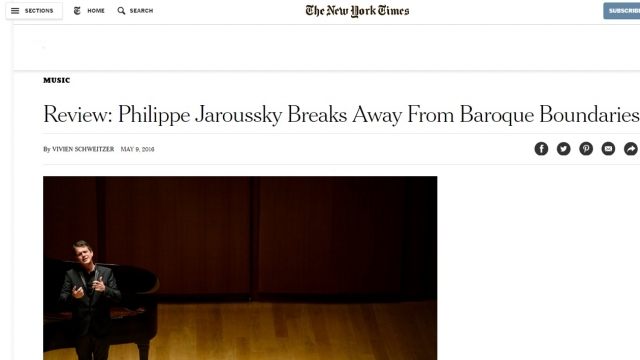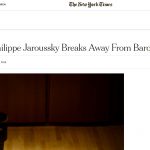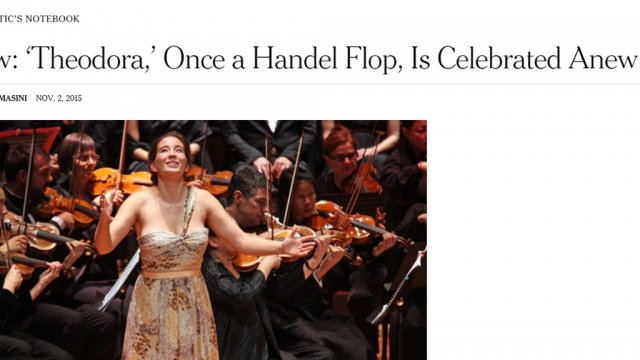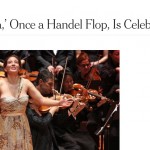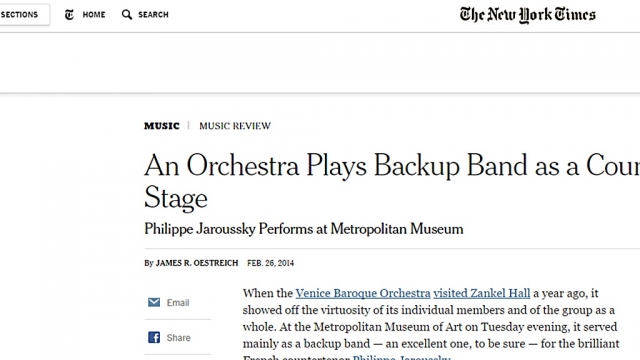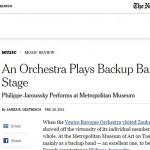2016-05-09, The New York Times, by Vivien Schweitzer
Mr. Jaroussky’s silken voice proved alluring in these elegantly conceived interpretations. He shaded the texts with myriad nuances, as in the dramatic “Fantoches” from Debussy’s “Fête galantes,” a set of six songs, including a setting of “Clair de Lune,” that was featured on the program. His phrasing was admirable, as in the subtly shaped conclusion of Charles Bordes’s “O triste, triste était mon âme.” Charles Trenet’s jazzy version of “Chanson d’automne” contrasted with Reynaldo Hahn’s somber setting.
Source/Read more: [x]

